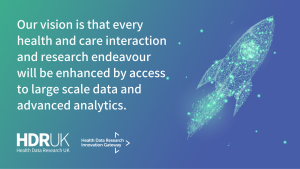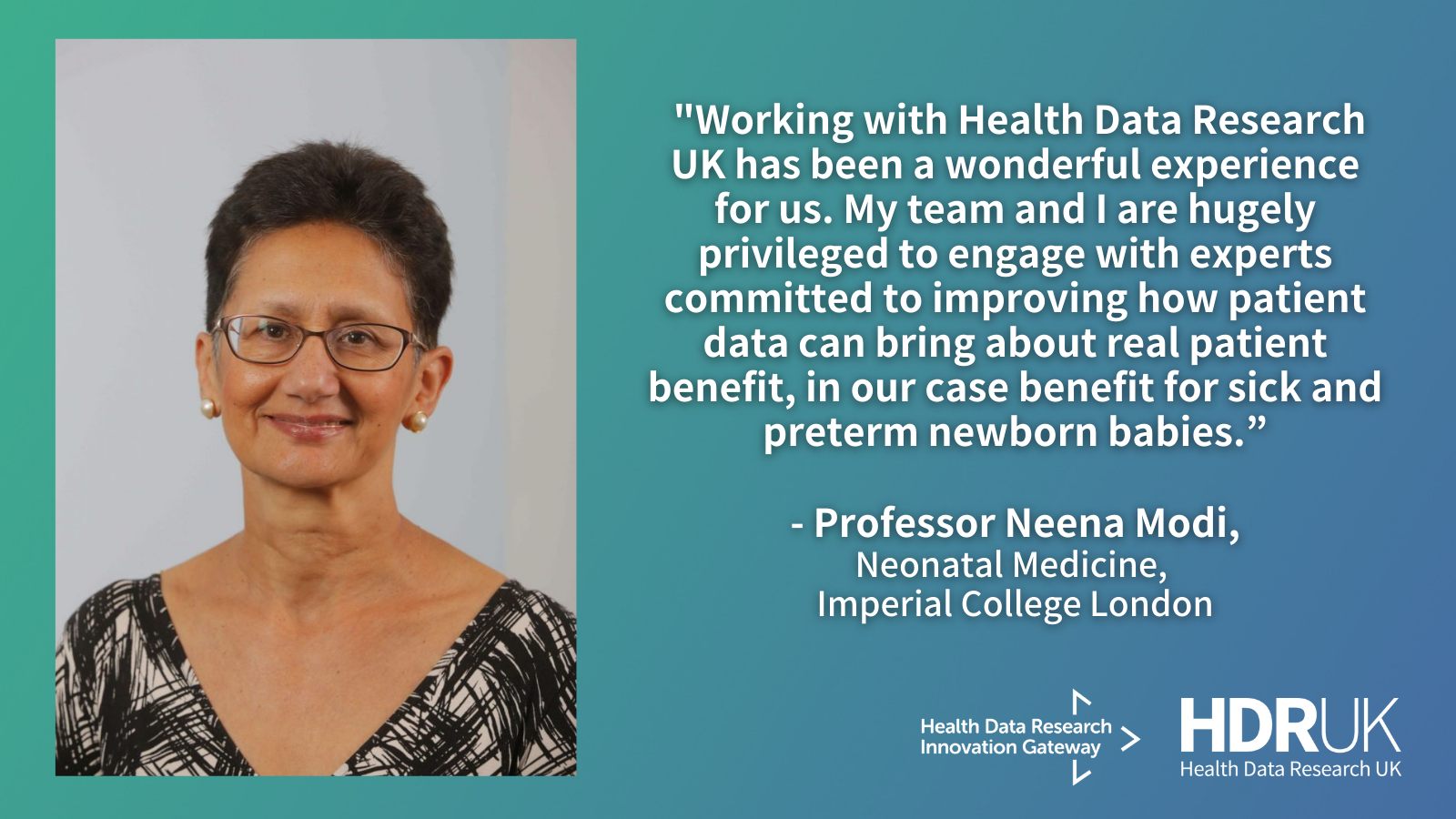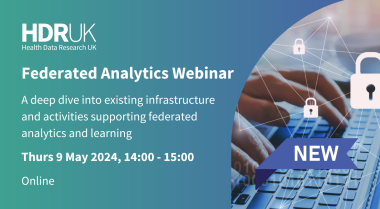Real-world data for real-world evidence and real patient benefit
1 November 2021
How the National Neonatal Research Database (NNRD) is working with Health Data Research UK (HDR UK).
The National Neonatal Research Database (NNRD) is a longitudinal, whole-population registry, developed with extensive stakeholder and parent involvement, as a single source of high-quality, detailed clinical information to improve newborn care.

It was developed and is maintained and managed at the Neonatal Data Analysis Unit at the Chelsea and Westminster NHS Foundation Trust campus of Imperial College London, led by Professor Neena Modi.
The NNRD is formed from regular extractions from electronic patient records; and contains information on all admissions to NHS neonatal units in England, Wales, and Scotland from 2007, representing over one million patients’ to-date. It is an immensely valuable asset, and its use has led to numerous improvements in neonatal clinical care, the organisation of health services for sick and preterm newborn babies, and national health policy.
Recently the team at the Neonatal Data Analysis Unit has partnered with Health Data Research UK (HDR UK), the national institute for health data science, to work with other custodians of UK health data, and improve how the NNRD can be better accessed for research for patient benefit.
At HDR UK’s monthly “Open Door” session for the Head Data Research Innovation Gateway (the ‘Gateway’), Professor Neena Modi talked about the NNRD to researchers in more detail; and how partnering with HDR UK is supporting their vital work.
Find out more – Watch the webinar
Working with Health Data Research – a model of collaboration
As a member of the UK Health Data Research Alliance (the ‘Alliance’), the NNRD team are now collaborating with over 60 other custodians of health data in the UK to increase alignments on standards for the use of health data for research, including key areas such as a unified approach for the developing Trusted Research Environment s(TREs) and how to best engage with public, patients and healthcare practitioners (PPPIE).
Partnering with Health Data Research UK has also enabled the NNRD to be listed in the HDR Innovation Gateway (“the Gateway”), providing the research community with more detailed information about the dataset (metadata), helping them discover the NNRD, and providing an efficient means to request access to the NNRD for their research projects.
Listing the NNRD on the Gateway in this way, also helps improve transparency and trust in how the data are being made available and used. It also provides assurance that the data are being made available in a safe, secure and trustworthy way.
The NNRD is a fantastic example of replacing labour-intensive, expensive collections with a single data source used for multiple purposes; now enhanced by working with Health Data Research UK.
If you are a data custodian and interested in finding out more about how Health Data Research can support your work, please contact Paola Quattroni, Alliance Delivery Manager: paola.quattroni@hdruk.ac.uk
Links and further information
Discover the NNRD on the Gateway.

Subscribe to our Data Discovery Newsletter for monthly updates on availability of datasets and functionality as we continue to develop the Gateway as the UK’s unified platform for data discovery and access.
The NNRD impact to date
The NNRD is an awarding-winning (Health Services Journal 2019; Royal College of Physicians 2018; British Medical Journal 2016) national data asset.
It supports valuable UK, international, public-sector and industry research, including (among many others) the Department of Health Mother and Newborn Policy Research Unit at the University of Oxford, the March of Dimes Prematurity Research Centre, and eNewborn (an International Neonatal Research Database).
The NNRD has contributed to high-profile NHS maternity investigations (e.g., Morecambe Bay 2015; East Sussex 2018); the Department of Health national ambition to reduce the incidence of neonatal brain injuries; enhanced parental leave for parents of babies admitted to intensive care (2019); measurement of adherence to care standards (National Audit Programmes); and a current US Food and Drug Administration study to support newborn medicines development.
It enabled the largest global study (90,000 infants) of preterm weight gain facilitating improved growth monitoring; identification of best feeding practice for babies with brain injury; showed reduced mortality and severe brain injury with birth in a specialised hospital; north-south England variation in preterm mortality; protection against the severe intestinal inflammation, necrotising enterocolitis, from early feeding with own mothers’ milk; and improved preterm outcomes in high volume neonatal units, with 1:1 nursing care, and following a national neonatal services reorganisation into managed clinical networks.
Most recently analyses of data from the NNRD showed the disproportionate impact of Covid-19 on mothers and babies of black ethnicity. However, this study also showed that among the most disadvantaged social group, admissions of very preterm babies fell during the immediate Covid-19 lockdown period. This intriguing finding suggests that non-medical interventions might be able to reduce preterm births.
Find out about the NNRD at Imperial College London




